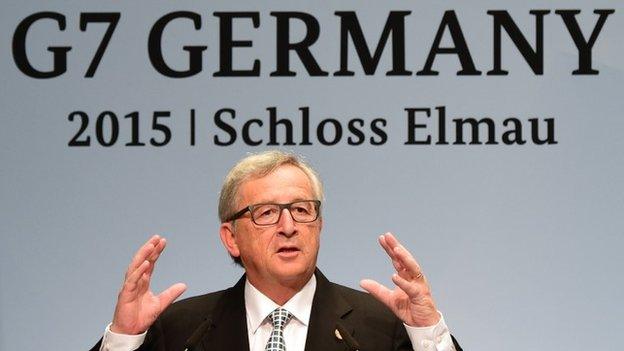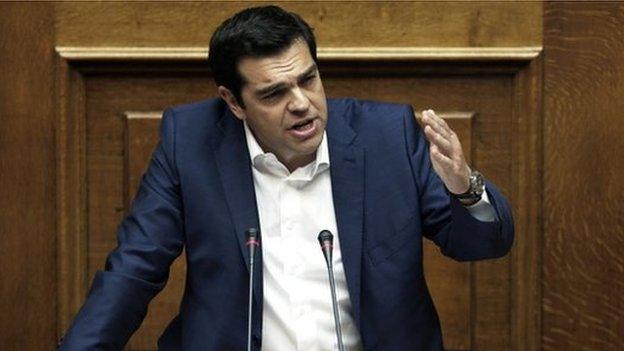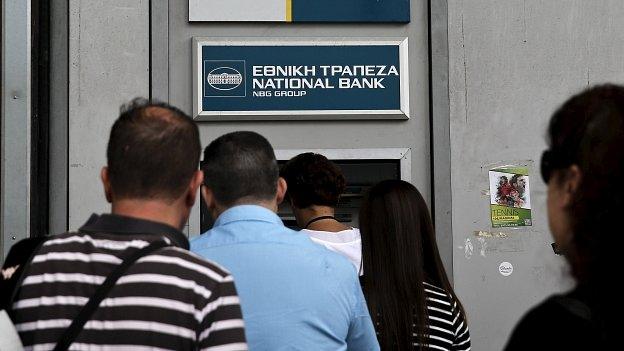Greece's Tsipras 'failed' to deliver promised plan - Juncker
- Published

European Commission president Jean-Claude Juncker says he has not yet received any alternative reform proposals from Greek prime minister Alexis Tsipras
Greek Prime Minister Alexis Tsipras failed to deliver alternative economic reforms that he had "promised", says European Commission president, Jean-Claude Juncker.
Mr Juncker urged Mr Tsipras to come up with some alternative proposals "swiftly" so that negotiations could continue this week.
On Friday, Mr Tsipras rejected the EC's own reform proposals as "absurd."
Mr Juncker was speaking at the G7 summit in Bavaria.
In a signal that relations between Europe and Greece's new Syriza government may be reaching breaking point, Greece's combative finance minister, Yanis Varoufakis, told a Greek newspaper that the latest reform demands were "an aggressive move designed to terrorise the Greek government... this Greek government cannot be terrorised".
Mr Juncker said that while he regarded Mr Tsipras as a friend, "friends have to observe minimal rules".
Mr Tsipras had misrepresented the EC's proposals to his parliament, Mr Juncker said, by suggesting they were offered on a take-it-or-leave-it basis, when he "knew perfectly well that I was willing to discuss the main points of disagreement".
The European Commission is asking for further reforms to Greece's economy, including tax increases and cuts in civil servants' salaries and pensions, before the next €7.2bn (£5.2bn) tranche of bailout money will be released.
But Greece has robustly rejected these proposals without some form of debt restructuring agreement in return.
Earlier this week, Greece said it would delay making a €300m loan repayment to the International Monetary Fund, instead rolling up four scheduled payments into one €1.6bn payment to be made at the end of June.
BBC economics editor Robert Peston said this move meant that "the risk of Greece defaulting on its debts - and leaving the euro - has substantially increased."

Greece debt talks - main sticking points
International creditors want pension cuts, slimmer civil service, VAT reform, fewer tax rebates and more private sector investment, reports say
Mr Tsipras rules out increased VAT on energy and reduced supplementary payments for poorer pensioners
Athens wants lower primary budget surplus targets, but both sides appear close to agreement. According to reports, creditors want a budget surplus of 1% of GDP this year and 2% next, while Greece has proposed 0.8% for 2015 and 1.5% for 2016




- Published5 June 2015

- Published5 June 2015

- Published4 June 2015
